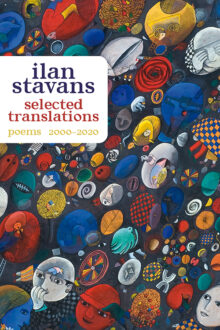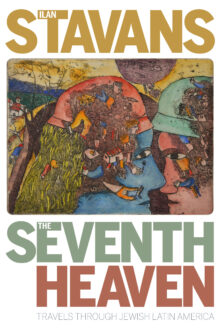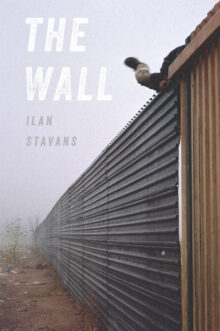
Ilan Stavans
Ilan Stavans is Lewis-Sebring Professor of Humanities, Latin American and Latino Culture at Amherst College. He is the author and translator of numerous books, including The Seventh Heaven: Jewish Travels Through Latin America and The Wall.
Selected Translations
2000-2020
For twenty years, Ilan Stavans has been translating poetry from Spanish, Yiddish, Hebrew, French, Portuguese, Russian, German, Georgian, and other languages. His versions of Borges, Neruda, Sor Juana Inés de la Cruz, Ferreira Gullar, Raúl Zurita, and dozens of others have become classics. This volume, which includes poems from more than forty poets from all over the world, is testimony to a life dedicated to the pursuit of beauty through poetry in different languages.
“Lightning from the Stable” by Elizabeth Schön (Venezuela, 1921–2007)
You don’t choose
the abyss, the chaos, the nothingness
They reach you
in water running slowly
for you not to be surprised
by the absence of matter around you
near the light of the soul calling
the wing’s passing flap of the earth you live in.
The Seventh Heaven
Travels through Jewish Latin America
Internationally renowned essayist and cultural commentator Ilan Stavans spent five years traveling from across a dozen countries in Latin America, in search of what defines the Jewish communities in the region, whose roots date back to Christopher Columbus’s arrival. In the tradition of V.S. Naipaul’s explorations of India, the Caribbean, and the Arab World, he came back with an extraordinarily vivid travelogue. Stavans talks to families of the desaparecidos in Buenos Aires, to “Indian Jews,” and to people affiliated with neo-Nazi groups in Patagonia. He also visits Spain to understand the long-term effects of the Inquisition, the American Southwest habitat of “secret Jews,” and Israel, where immigrants from Latin America have reshaped the Jewish state. Along the way, he looks for the proverbial “seventh heaven,” which, according to the Talmud, out of proximity with the divine, the meaning of life in general, and Jewish life in particular, becomes clearer. The Seventh Heaven is a masterful work in Stavans’s ongoing quest to find a convergence between the personal and the historical.
The Wall
Winner of the Massachusetts Book Award for Poetry
The Wall is a poetic exploration—across time, space, and language, real as well as metaphorical—of the U.S.-Mexican wall dividing the two civilizations, of similar walls (Jerusalem, China, Berlin, Warsaw, etc.) in history, and of the act of separating people by ideology, class, race, and other subterfuges. It is an indictment of hateful political rhetoric. In the spirit of Virgil’s Aeneid and Spoon River Anthology by Edgar Lee Master, it gives voice in symphonic fashion to an assortment of participants (immigrants, border patrol, soldiers, activists, presidents, people dead and alive) involved in the debate on walls. It brings in elements of literature and pop culture, fashion and cuisine. Poetry becomes a tool to explore raw human emotions in all its extremes.



